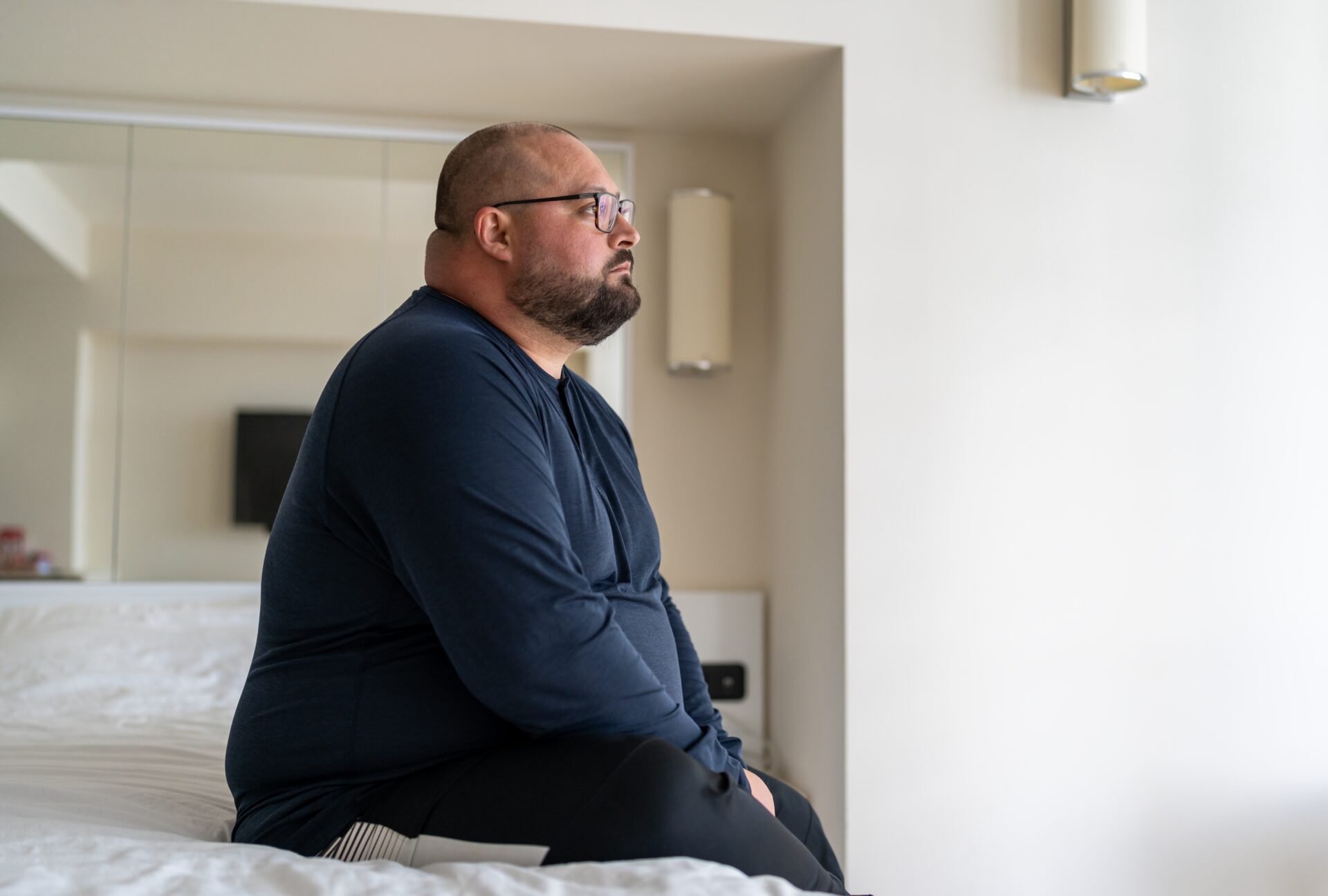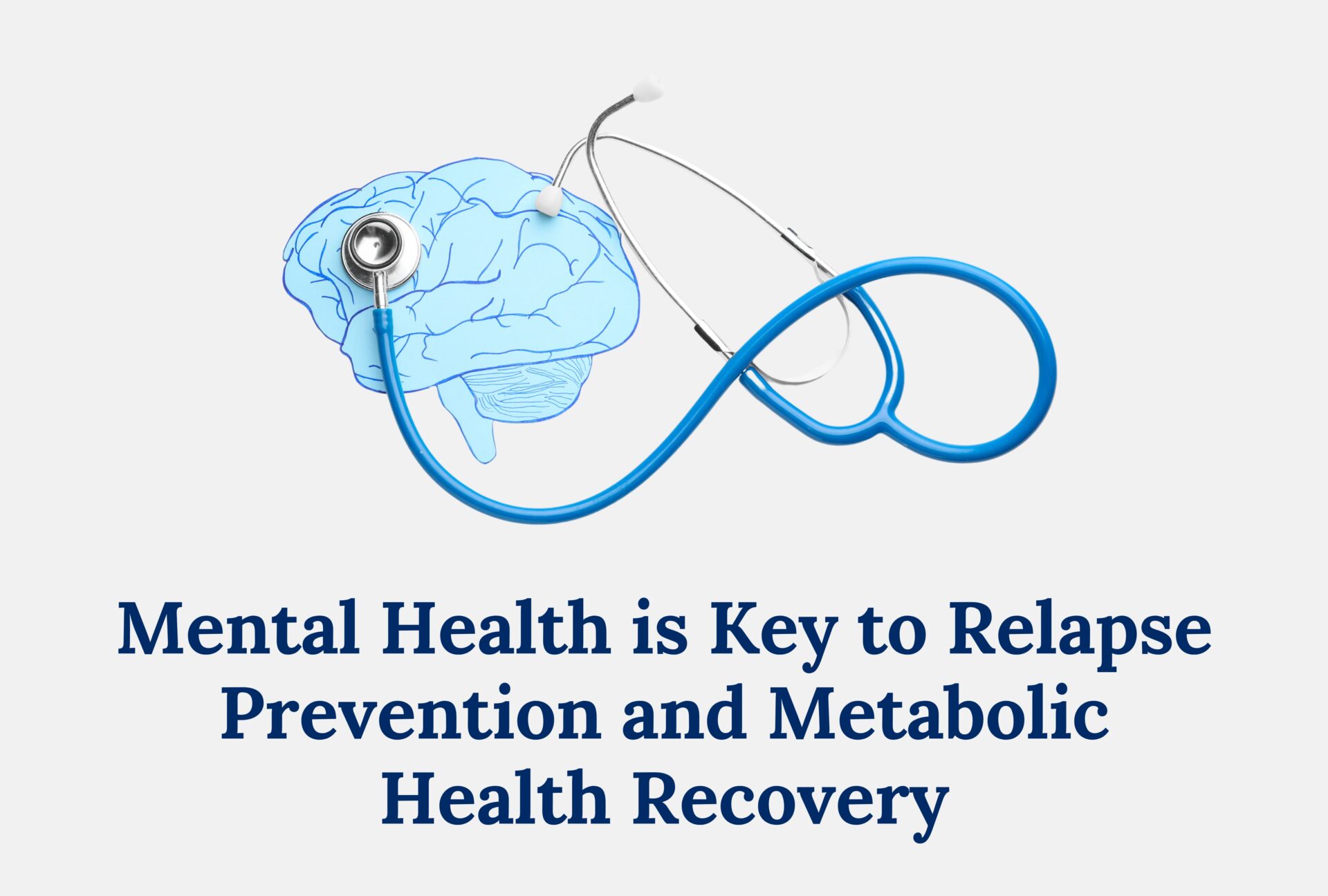Mental health and a sense of well-being are the foundation for relapse prevention and sustained weight related metabolic health recovery.
Health is not only the absence of illness, but also the presence of well-being brought forth by mental health and a sense of well-being. It’s established that lifestyle practices that restore and maintain metabolic health have the potential to improve brain health and cognitive functioning.
What we don’t want to do, with a renewed media focus on the benefits of ketogenic diets, is confuse brain and metabolic health with mental health. Left untreated, mental health disorders such as anxiety, depression, trauma, and relationship challenges, often lead to patterns of relapse behaviors, weight gain, and the return of metabolic illnesses.
Only 20% of adults who engage in metabolic recovery efforts (including medically assisted weight loss) are successful in sustaining weight loss for more than 2 years.

Today, and every day in the US, 1400 adults die prematurely from metabolic conditions associated with obesity, cardiovascular disease, and type 2 diabetes. That’s over 500,000 preventable deaths every year.
Statistically speaking, 80% of the population in metabolic recovery will experience lapses that lead to relapse. For many, a mental health relapse precipitated by increased life stress or negative interpersonal dynamic leads behavioral relapse. When relapse occurs mental health is further undermined by pervasive feelings of despair, self-defeat, frustration and ultimately, apathy.

Relapse is a Process
Relapse, a return to previous behaviors after a period of abstinence or improvement, may be better viewed as a process rather than an event. A process that typically begins with some form of emotional dysregulation or “longing to mood alter”, and a decrease in goal oriented motivation that results in a return to impulsive or compulsive behaviors. Relapse can happen across multiple facets of daily life with significant negative consequences. For example, when we stop getting regular exercise and adequate restorative rest, the process of cellular renewal that supports health and longevity is impaired.
In weight loss programs, too often relapse focuses on the act, or consumption of undesirable substances. However, consumption, (or giving up on other activities) is the very last stage in relapse.
When we focus on relapse as a process rather than the end event, then we can help our patients identify distinct stages and develop their awareness of mood states and “choice” points.
With most cyclical processes, there’s a recurring theme or pattern. It begins with a triggering event (or threat), a sudden rush of unpleasant emotions, an overwhelming need to reassert “control”, “acting out” and ultimately, emotional and physiological “relief”.

Relapse Prevention
Prevention, like other recovery challenges, begins with awareness and an understanding of the relationships between food, brain chemistry, emotions, and compulsion. In fact, the first BreakThrough! session introduces participants to early attachment styles and family of origin influences to appreciate and understand the comfort and nurturing we associate with food from birth. As patients become aware of how their life experiences shaped their self-view, emotional patterns and behaviors, then they begin the guided introspective work of recovering from addiction, depression, anxiety, trauma, and personality challenges. This work is followed by sessions that explore interpersonal, social and environmental factors. As the course unfolds, relapse prevention is addressed as patients develop a positive strength based sense of self combined with self-regulating strategies and social support.

Mental and Metabolic Health Recovery is Sustained by Engaging in Lifestyle Behaviors.
Relapse prevention begins when patients recognize their personal triggers and have “go-to” cognitive strategies and support to resist or override emotional impulses. That said, it’s important to acknowledge that mental health and positive emotional regulation depend on lifestyle behaviors that support brain health and metabolic wellness. These behaviors, endorsed by the ACLM and the Obesity Medicine Association include adequate rest, nutrition, physical activity, avoidance of risky substances, social connectivity, and stress management.

Support for Your Patients
Every month our team offers closed 16 week courses to help your patients recover from their mental health and weight related metabolic health conditions. Free of any advertising or product endorsements, our approved courses focus on the care aspects of mental health recovery, behavioral health and relapse prevention. Space is limited to 12 individuals per group. When we conduct groups for organizations and private practices, providers and support staff are welcome to attend free of charge.
If this is a good fit for your organization or clients please reach out to us.
Dr. Heather Hamilton, Founder Team BreakThrough!
breakthroughwmt.com

